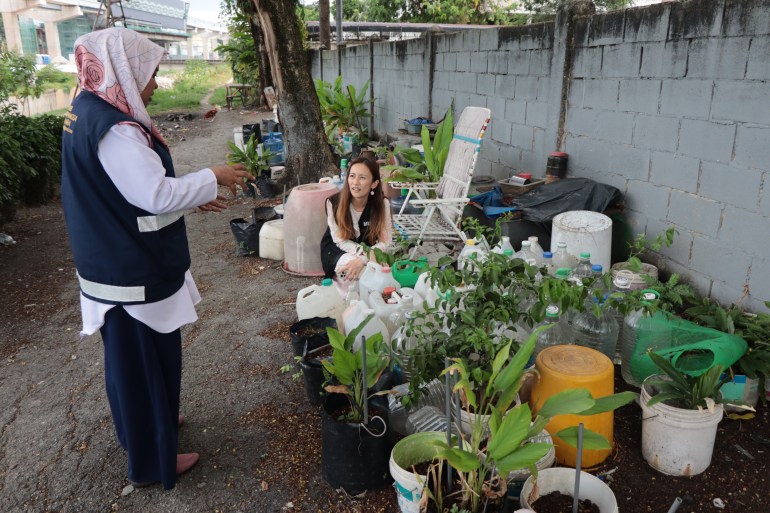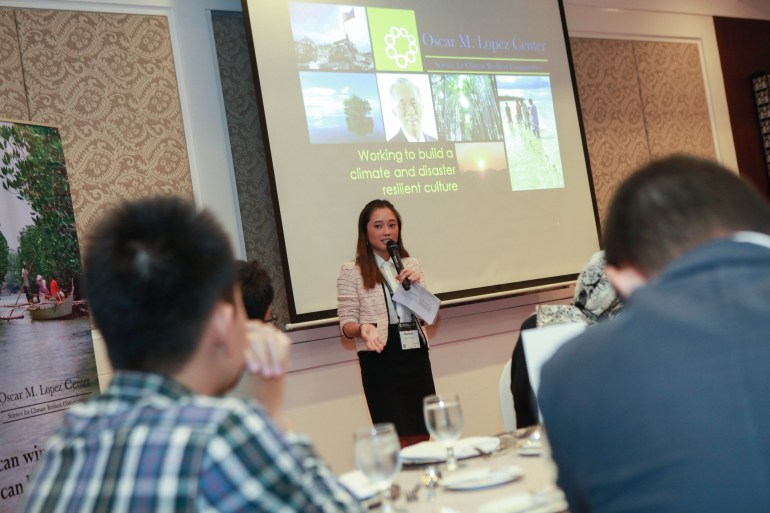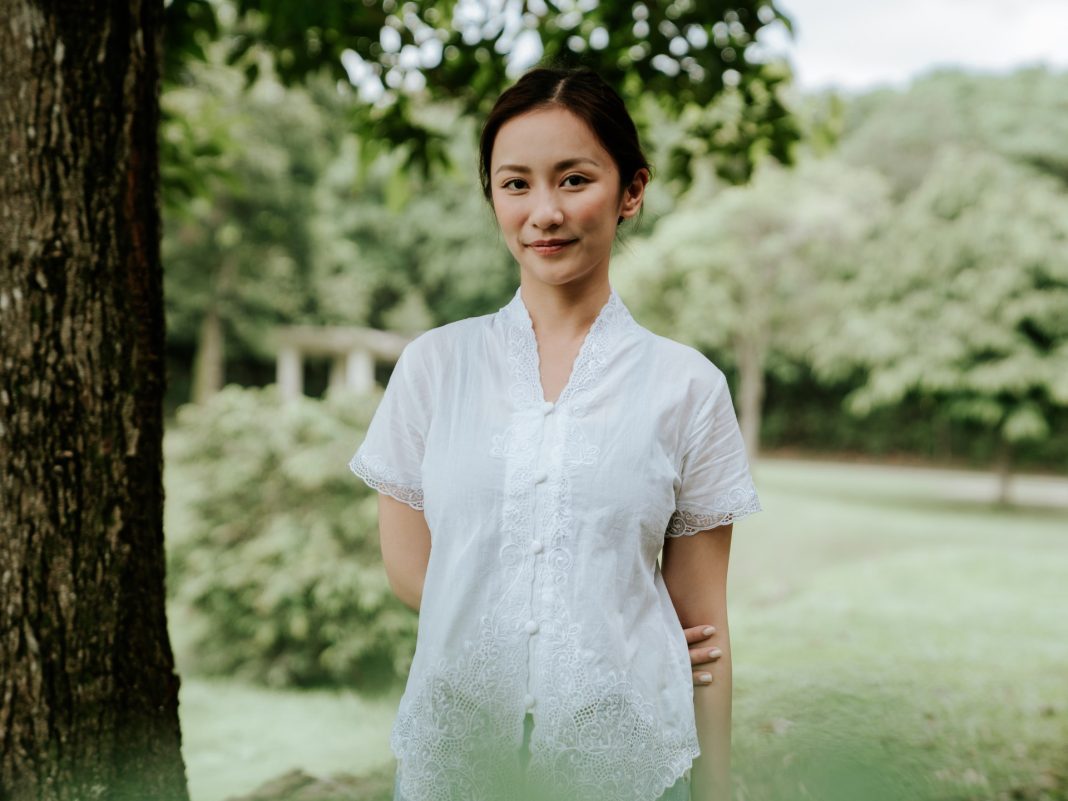Kuala Lumpur, Malaysia – From Malaysia to Singapore and the Philippines, second- and third-generation family businesses in Asia are charting a different path from their forefathers as they seek out greener and more sustainable investments.
For some millennial business heirs, the journey is smooth. For others, the gap between their comfortable lives – which gave them the space to learn about socially conscious “impact investing” – and their parents’ experiences of growing up poor has led to conflict.
Malaysian Abe Lim, 27, grew up under circumstances far removed from those of her father, who quit school as a teenager to work as a mechanic to support his family.
Lim’s father went on to build a business producing lubricants, soap and dish-washing liquid and recruited her into the company as a young woman in the hope she would take the reins one day.
But Lim’s youthful idealism soon clashed with her father’s traditional profit-focused business model.
“I wanted to do something more impactful. My father’s business was traditionally run where the focus is based on profits,” Lim told Al Jazeera.
“Instead of prioritising monetary gains, I wanted to prioritise social and environmental impact. This is something very new for the previous generation.”
While working at her father’s company, Lim suggested setting up a research and development department to explore turning plastic waste into biofuels.
Her father agreed and put some money into the idea.
“When it was shown scientifically that it is doable but economically not viable, he stopped,” Lim said.

Lim also disagreed with her father on climate change, which he dismissed as “Western propaganda”.
Lim ultimately decided to leave her father’s company and venture out on her own.
Her first enterprise, funded by angel investors, was a marketplace for used furniture that aimed to cut down on waste by promoting recycling.
“But we couldn’t sustain ourselves as the market wasn’t mature enough,” Lim said.
Lim also had to contend with superstitious beliefs about second-hand furniture that are prevalent in Asian culture.
“Some people think there are ‘ghosts’ linked to old furniture,” she said.
In 2021, Lim founded Purpose Plastic, which recycles discarded plastic into home decor, chess pieces, furniture, mahjong tiles and other products.
“We are profitable,” Lim said. “Our largest orders are always corporate gifts.”
Lim hopes that businesses will one day prioritise the environment over profit.
“I would never want to say it is impossible because I am hopeful it will happen one day,” she said.
“For businesses to be on board and participate in sustainable goals, there needs to [be] a form of incentive. Maybe that will get the ball rolling.”
In August, the law graduate stood for local elections in the state of Selangor on a platform emphasising policies to tackle climate change. While she was not successful, she is open to running again.
“For now, I want to be focused on growing my grassroots and expanding my environmental work. Being a politician is not just about being elected but about providing solutions for the long-term to support people’s everyday lives,” said Lim, who is a member of the Malaysian United Democratic Alliance, a youth-oriented party.
Catalyst for change
Komal Sahu, a member of the Asian Venture Philanthropy Network, said younger generations are reshaping perceptions among business owners by emphasising the need for companies to make a positive social impact.
“They recognize that their family’s wealth can serve as a catalyst for positive transformation, addressing societal needs beyond what government aid covers,” Sahu told Al Jazeera.
Sahu said second- and third-generation business heirs are embracing socially conscious investing to show that it is possible to align financial returns with social and environmental goals.
“By incorporating environmental, social and governance factors into their investment decisions, they advocate driving positive change while ensuring financial viability for their businesses,” Sahu said.
Still, Sahu said, it should not be assumed there is always a conflict between new and old ways of thinking about business.
“That is not always the case. … In some instances, the previous generations are the ones encouraging bolder and more innovative ways of thinking to ensure the ongoing success of their businesses or their philanthropic efforts,” she said.
Filipino Marianna Lopez Vargas, 32, is a case in point.
She is the partnerships manager of the Oscar M Lopez Center, a Manila-based climate change research foundation founded by her tycoon grandfather.
Oscar M Lopez, who made his fortune in telecommunications, energy and real estate, opened the centre in 2012 in response to an “alarming lack of funding” going into understanding the local impact of climate change and to develop adaptation strategies, Lopez Vargas told Al Jazeera.
Lopez Vargas said she considers herself “very lucky” to be part of a family and organisation that align with her own personal values.
Based on concerns about climate change, the family’s businesses made “a very bold decision” in 2016 to completely divest its power interests from coal and pursue an energy portfolio based on clean and renewable energy, she said.
Lopez Holdings Corporation currently has no existing or proposed coal-fired power projects. Its energy portfolio is made up of natural gas, hydropower, and geothermal and solar energy – although company bosses have admitted that a complete transition to renewables is not yet realistic because of the intermittency of solar and wind energy.

“[It’s] quite ambitious at that time given a developing country like the Philippines that was heavily reliant on fossil fuels for its economic development,” Lopez Vargas said.
Lopez Vargas is confident that cutting out fossil fuels completely is achievable in time.
“It’s certainly a possible future with all the enabling factors and the right institutional incentives in place,” she said. “It is also a necessary transition but done so in a just, equitable and inclusive manner.”
For millennial business leaders, persuading the older generation to adopt new ways of thinking requires effective communication and a deep understanding of generational differences and perspectives, Sahu said.
“Hence, many second- and third-generation family businesses … encourage their elders to explore new ideas and embrace innovative approaches by engaging in open, respectful dialogue,” Sahu said.
Singapore-based Brazilian Fernando Scodro, 35, illustrates this point. He is responsible for implementing the investment strategy of the family office Grupo Baoba in Rio de Janeiro.
Scodro taught his family about socially conscious investing after attending a course at the University of Zurich that expanded his knowledge about investment possibilities.
“I translated the entire course into Portuguese for my family. It took me three months. They learned with me,” Scodro told Al Jazeera.
A number of years ago, Scodro’s father invested in CODNI, a startup in Brazil that helps other firms reduce their energy consumption, after seeing a good business opportunity in the profitable firm.
“I loved the business model of an energy efficiency company. It resonated with me,” Scodro said. “I told my Dad, ‘Hey, you are making an impact investment. You just didn’t know.’”







